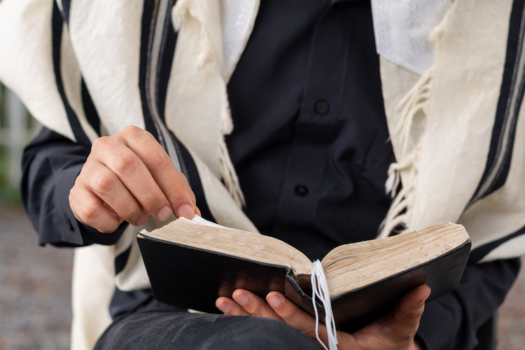
The Supreme Court of New Jersey recently granted certification in a case that will determine whether the ministerial exception, which prohibits the application of anti-discrimination laws to religious institutions’ employment relationships with its “ministers,” applies to claims other than employment discrimination.
As the U.S. Supreme Court explained in Our Lady of Guadalupe School v. Morrissey-Berru, 591 U.S. ____ (2020), the First Amendment’s religious clauses do not provide religious institutions “general immunity from secular laws,” but they do “protect their autonomy with respect to internal management decisions that are essential to the institution’s mission.” In an issue of first impression, the New Jersey Supreme Court will decide how far such protections extend.
Facts of the Case
In 1988, plaintiff Shlomo Hyman was hired by Rosenbaum Yeshiva of New Jersey (RYNJ), an Orthodox Jewish school, as a Judaic studies teacher. A predominant feature of Orthodox Judaism is a commitment to specific principles of behavior and conduct, such as restrictions on physical contact between unrelated people of different genders. If RYNJ determined, based on its understanding of Orthodox Jewish law and in consultation with halachic authorities, that a Judaic studies teacher has behaved in a way that does not adhere to halacha, it would terminate that teacher’s employment.
Through his position as an ordained rabbi teaching at an Orthodox Jewish School, Hyman applied for and received an annual parsonage allowance from RYNJ. Since RYNJ does not grant tenure status to staff members, Hyman was required to sign a new employment agreement each year he received a new offer letter. By signing the employment agreement, he agreed to abide by certain policies and standards of conduct for teachers that embodied the Orthodox Jewish religious standards and rules of halacha. Hyman also acknowledged receipt and understanding of the Staff Handbook, which set out standards of conduct for RYNJ teachers. The Staff Handbook states that RYNJ teachers, particularly those who teach Orthodox Jewish religious law and practices, are expected to conform to the school’s religious principles, such as refraining from touching students of the opposite gender that are in the third grade or older.
In 2019, RYNJ received allegations of inappropriate interactions between Hyman and female students. He was subsequently placed on administrative leave while the allegations were investigated. After an outside law firm investigation substantiated the allegations, RYNJ terminated plaintiff’s employment. The school also sent a letter to parents informing them of Hyman’s termination.
The letter was spread throughout the entire school community and similar Jewish communities. Hyman later filed suit alleging (1) breach of contract; (2) breach of the covenant of good faith and fair dealing; (3) age discrimination under New Jersey Law Against Discrimination; (4) defamation; (5) defamation per se; (6) defamation by innuendo; (7) injurious falsehood; (8) tortious interference with future economic opportunities; (9) negligent infliction of emotional distress; and (10) outrageous conduct causing emotional distress. Hyman’s complaint alleged RYNJ conducted a “sham investigation” into “baseless allegations.” He then alleged based on the sham investigation, RYNJ wrongfully terminated him, maliciously emailed the letter to the community, and falsely branded him as a pedophile, which prevented him from obtaining employment as a rabbi or Jewish education teacher.
RYNJ moved for summary judgment pursuant to the ministerial and ecclesiastic abstention doctrines. The trial court agreed, noting that plaintiff was an ordained minister and religious teacher who was fired for failure to comply with religious tenets.
Appellate Division Decision
On appeal, Hyman argued that the ministerial exception only shields against employment discrimination claims. The Appellate Division disagreed, concluding that the ministerial exception also bars his defamation claim.
In reaching its decision, the appeals court acknowledged that the issue was a matter of first impression in New Jersey. Citing court decisions in jurisdictions like California, the Appellate Division ultimately held that the ministerial exception operates to bar any tort claim provided (1) the injured party is a minister formerly employed by a religious institution and (2) the claims are related to the religious institution’s employment decision.
Issues Before the NJ Supreme Court
The New Jersey Supreme Court granted certification on October 6, 2023. The justices agreed to consider the following question: “Does the ministerial exception bar any tort claims raised by a former ministerial employee against a religious institution if those claims are related to the religious institution’s employment decision?”
Oral arguments have not yet been scheduled. Please check back for updates.
